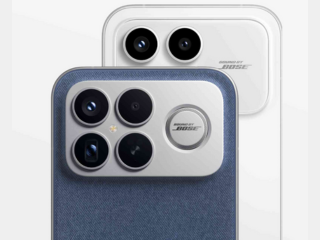- Home
- Science
- Science News
- Facial Recognition Problems Amid Coronavirus Outbreak Solved; Masked Faces Not a Problem Anymore: Report
Facial Recognition Problems Amid Coronavirus Outbreak Solved; Masked Faces Not a Problem Anymore: Report
AI and facial recognition companies have found the face ID solution by locating several key points around the eyes and nose.
Citizens are advised to wear face masks amid coronavius outbreak
As China grapples to curb the deadly coronavirus outbreak that has claimed lives of over two thousand citizens, tech companies in the country are also scratching their figurative heads to find suitable solutions for potential security glitches amid all this. While Chinese citizens were advised to wear protective face masks when they're outside or in a high-risk area, it was feared that by doing this, facial recognition systems in the country and on smartphones, will fail to work as expected.
But a report is now indicating that companies in China responsible for overlooking facial recognition systems have found a solution to this glitch and in fact, have already fixed the problem. According to a report by Abacus, leading AI and facial recognition companies such as SenseTime and Qingfei Technologies have found a solution to the failed facial recognition problems through locating several key points on the face.
Explaining this solution, Amarjot Singh, a postdoctoral fellow at Stanford University told the website that breakthrough to disguised face identification (DFI) came in 2017 when concerns were raised regarding people wearing eyeglasses, fake beards, scarves and hard hats. Singh explained that an algorithm developed by them successfully identified key points around the eyes, nose and lips that together can "form a unique person-specific signature." He further cautioned that this could fail at times, however "a match still can be established."
This technology over the years has become more sophisticated and SenseTime, which announced the rollout of its face mask-busting tech last week, claimed that its algorithm is now able to read 240 facial feature key points around the eyes, mouth and nose.
Abacus in its report noted that the demand for an improved facial recognition system was desperate since certain areas in the country, hard-hit by coronavirus, have limited movement of citizens. An improved system will aid in identifying residents without taking their masks off.
But challenges despite all this persist, noted President of Minivision's AI research institute Hu Jianguo. Hu in an interview claimed that when partial facial recognition system reaches a certain threshold, "the system is likely to encounter people with similar eyes" therefore, causing a failure.
Meanwhile, companies are searching for all sorts of solutions including custom face masks with images of users on them. But the high cost of these masks pose another set of challenges.
Catch the latest from the Consumer Electronics Show on Gadgets 360, at our CES 2026 hub.
Related Stories
- Samsung Galaxy Unpacked 2025
- ChatGPT
- Redmi Note 14 Pro+
- iPhone 16
- Apple Vision Pro
- Oneplus 12
- OnePlus Nord CE 3 Lite 5G
- iPhone 13
- Xiaomi 14 Pro
- Oppo Find N3
- Tecno Spark Go (2023)
- Realme V30
- Best Phones Under 25000
- Samsung Galaxy S24 Series
- Cryptocurrency
- iQoo 12
- Samsung Galaxy S24 Ultra
- Giottus
- Samsung Galaxy Z Flip 5
- Apple 'Scary Fast'
- Housefull 5
- GoPro Hero 12 Black Review
- Invincible Season 2
- JioGlass
- HD Ready TV
- Laptop Under 50000
- Smartwatch Under 10000
- Latest Mobile Phones
- Compare Phones
- Tecno Spark Go 3
- iQOO Z11 Turbo
- OPPO A6c
- Samsung Galaxy A07 5G
- Vivo Y500i
- OnePlus Turbo 6V
- OnePlus Turbo 6
- Itel Zeno 20 Max
- Lenovo Yoga Slim 7x (2025)
- Lenovo Yoga Slim 7a
- Lenovo Idea Tab Plus
- Realme Pad 3
- Garmin Quatix 8 Pro
- NoiseFit Pro 6R
- Haier H5E Series
- Acerpure Nitro Z Series 100-inch QLED TV
- Asus ROG Ally
- Nintendo Switch Lite
- Haier 1.6 Ton 5 Star Inverter Split AC (HSU19G-MZAID5BN-INV)
- Haier 1.6 Ton 5 Star Inverter Split AC (HSU19G-MZAIM5BN-INV)

















